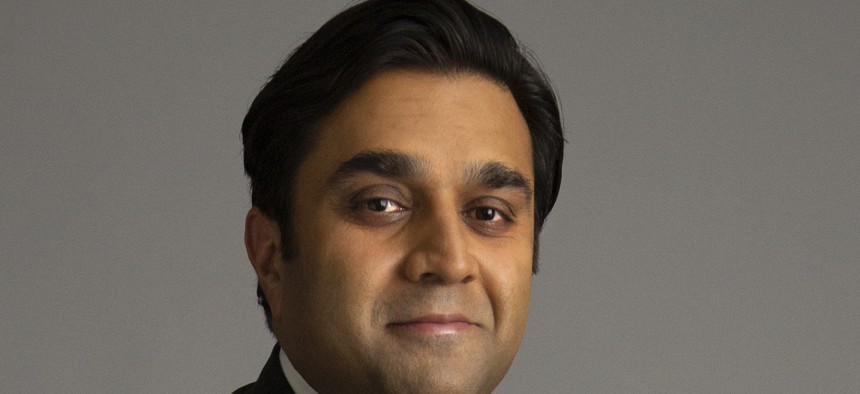NYC health commissioner: “COVID-19 is here to stay”
New York City Health Commissioner Ashwin Vasan asked for help in informing New Yorkers about existing tools to fight COVID-19, as some free ones vanish.

New York City Health Commissioner Ashwin Vasan NYC HEALTH DEPARTMENT
The end of the federal public health emergency for COVID-19 does not mean the end of the disease, New York City Health Commissioner Ashwin Vasan said on Monday.
At the City Council’s executive budget hearing on health and mental health, Vasan drew attention to the end of the federal government’s public health emergency for COVID-19. After more than three years, the emergency expired on May 11, drawing to a close some of the free public health services that New Yorkers have come to rely on, including the city’s mobile test to treat sites, in-home vaccinations for homebound New Yorkers and at some point, distribution of free at-home test kits. (Many community centers and other public sites across the city are still distributing those free at-home tests while they have them, but their stockpiles will no longer be replenished by the federal government.)
While the federal emergency has ended, Vasan suggested that the city shouldn’t get complacent about taking preventative steps. “Despite the end of the emergency declaration, COVID-19 is indeed here to stay,” Vasan said in opening remarks at the City Council budget hearing, before asking council members for their assistance is distributing a social media toolkit with information about how New Yorkers can get vaccinated, get tested, access treatment if they test positive, and stay up to date with public health information.
New York City Council Member Lynn Schulman, who chairs the Committee on Health, echoed Vasan’s sentiments. “Thank you for acknowledging that COVID is not yet over,” Schulman told the commissioner. “We’re going to be living with it.”
But when Schulman asked whether that toolkit would include information about accessing free tests, Vasan couldn’t quite commit to that.
“With commercialization of vaccines, tests, treatments over time – not immediately, but over time – we're going to ask New Yorkers and Americans to rely more on the routine health system. And the routine health system has its challenges for people, in particular, who don't have insurance,” Vasan said. “That said, our safety net systems – our public hospital system, our federally qualified health centers, our community health centers – provide that free or extremely low cost safety net that New Yorkers rely on for so many health conditions. And the department is committed to ensuring that those services continue to be accessible. But I'd be remiss if I said it would look and feel exactly as it has over the last three years, because we have fundamental flaws in our health care system and the way we deliver health care in this country.”
Vaccines are expected to remain free for those with and without insurance. The city’s Department of Health and Mental Hygiene has said that people can continue to access vaccination at Health + Hospitals and Gotham Health facilities, regardless of insurance or immigration status.
As he has before, Vasan called for sustained public health funding to ensure that programs created or expanded during the pandemic – like contact tracing and wastewater surveillance – can continue in the event of another public health emergency.
Vasan said that he would like to see wastewater surveillance become a permanent part of the city’s public health infrastructure, and noted that the city currently has funding through federal grants to continue the program. “But it does raise the question of what happens in a couple of years, when that federal fund expires, when those grants expire,” Vasan said. “Who is going to pay for wastewater surveillance in an ongoing way? I think it's a really important question and a point of advocacy to our federal partners. But it's also an open question for our state and our city. Who is going to pay for core public health assets that have been built up during the pandemic that New Yorkers have come to expect?”